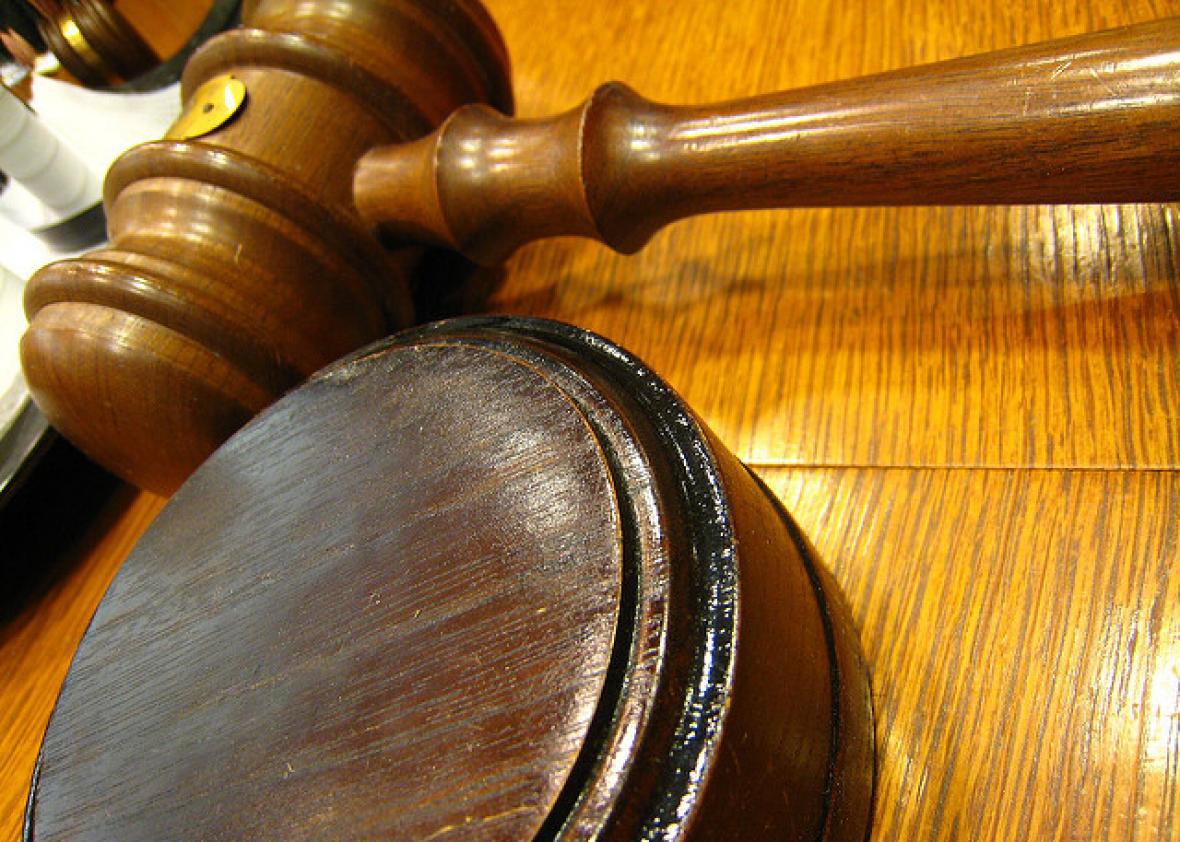On Aug. 30, transgender Americans achieved a little-noticed but critical legal victory in a California state court. Judge Gregory Keosian announced he will dismiss fitness guru Richard Simmons’ defamation lawsuit in which Simmons claimed reputational harm after the National Enquirer falsely called him a transgender woman.
For the first time in United States history, Keosian declared that misidentifying a person as transgender is not defamatory because it does not subject that individual to “hatred, contempt, ridicule or obloquy.” Keosian further explained that the judicial system should not countenance anti-trans animus, notwithstanding its existence in pockets of society. “While, as a practical matter, [transgender persons can] be held in contempt by a portion of the population,” Keosian said, “the court will not validate those prejudices by legally recognizing them.”
Defamation lawsuits are intended to provide a legal remedy to individuals who are maligned by untrue statements, like wrongful accusations of criminal conduct. But there is a long record of plaintiffs abusing defamation law by piggybacking off social prejudices held against minority groups. Plaintiffs like Simmons effectively ask courts to let the law to reinforce harmful stigmas and stereotypes.
The history of anti-minority libel and slander lawsuits is shocking, but it also reveals a great deal about the odious roots of legal claims like Simmons’. In 1791’s Eden v. Legare, South Carolina’s high court ruled that falsely describing an individual as “mulatto” was actionable “because, if true, the [plaintiff] would be deprived of all civil rights.” False imputations that white persons were nonwhite or otherwise racially “impure” remained actionable in parts of the United States well into the twentieth century.
In 1957, the South Carolina Supreme Court affirmed the 1791 precedent in Bowen v. Independent Publishing Company. The court held that false racial classifications were defamatory because in light of “social habits and customs deep-rooted in [South Carolina], such publications [alleging non-white ancestry] are calculated to affect [a person’s] standing in society” and harm their personal relationships. Bowen and decisions of its ilk reinforced Jim Crow culture through private lawsuits: These rulings were little more than full-throated endorsements of white supremacy.
Defamation law has also harmed gays, lesbians, and bisexuals. In 2011, a New York court ruled that false imputations of homosexuality were still viable defamation claims under state law. Ironically, that ruling was handed down just a few days before the New York Legislature enacted landmark legislation recognizing same-sex marriage. An appellate court overturned that decision in 2012, noting that the lower court’s decision relied on bad law “based on the flawed premise that it is shameful and disgraceful” to be in a same-sex relationship.
However, some states, like Texas, have yet to disavow precedent—allowing, as recently as 2011, defamation lawsuits brought by heterosexuals who claim they were harmed for being misidentified as gay. Those outmoded rulings boost privately held homophobia by gifting them the color of law.
Judicial action that advances or gives credence to privately held class-based bias is inconsistent with America’s constitutional values. As the Supreme Court has recognized, the law cannot, directly or indirectly, give effect to private biases. Courts would amplify ideologies that relegate minorities to second-class status if they recognized claims that membership in a minority community is inherently contemptible.
For transgender people, Keosian’s ruling is a powerful rejection of the stigma perpetuated by groups that would have trans Americans deemed social pariahs: forced to use restrooms inconsistent with their gender identity, subjected to harmful reparative therapies, or left without a legal remedy if they are mistreated in the workplace, schools, or the public square.
The California ruling should guide judges in other jurisdictions who face a similar decision to dismiss a trans-related defamation lawsuit. But policymakers can be proactive as well. Given the damaging effects of stigma on the most vulnerable members of society, lawmakers should consider preemptively banning these kinds of lawsuits by legislation. Lawmakers can make clear that because there is nothing shameful about being associated with the LGBTQ community, the misidentification of a person as LGBTQ can never support a libel or slander claim. In an age when LGBTQ rights are under siege by the federal government, states can advance equality by following Keosian’s lead and ensuring that defamation law cannot be used to demean sexual and gender minorities.
